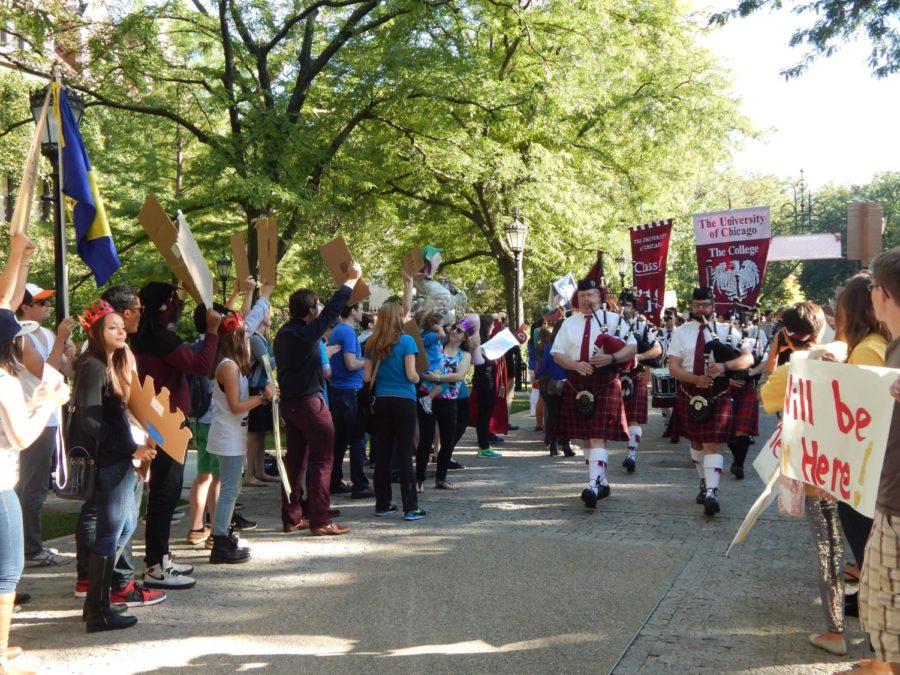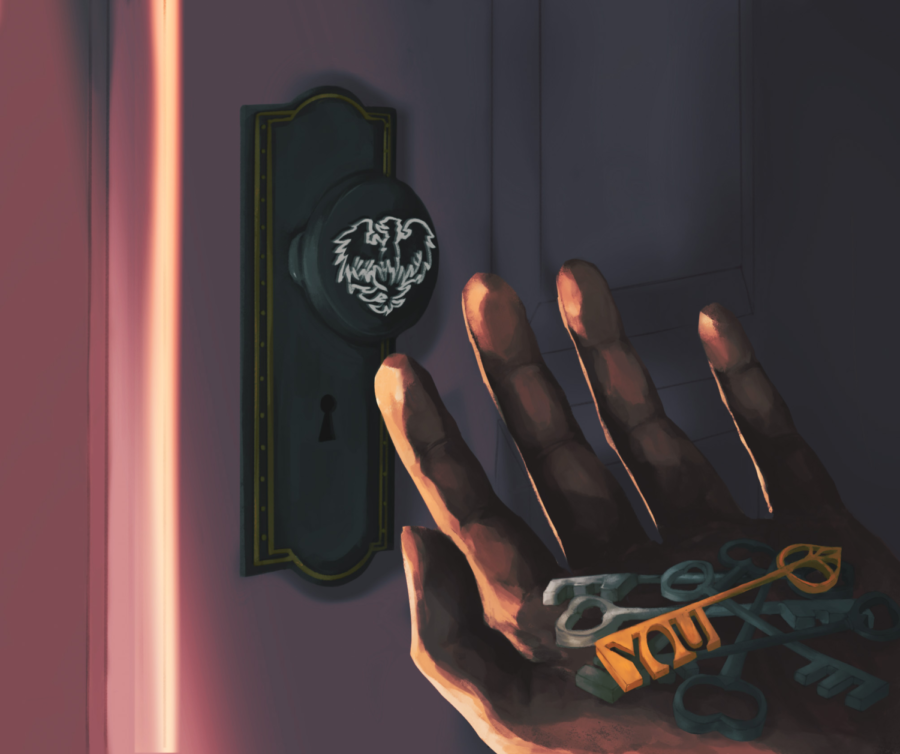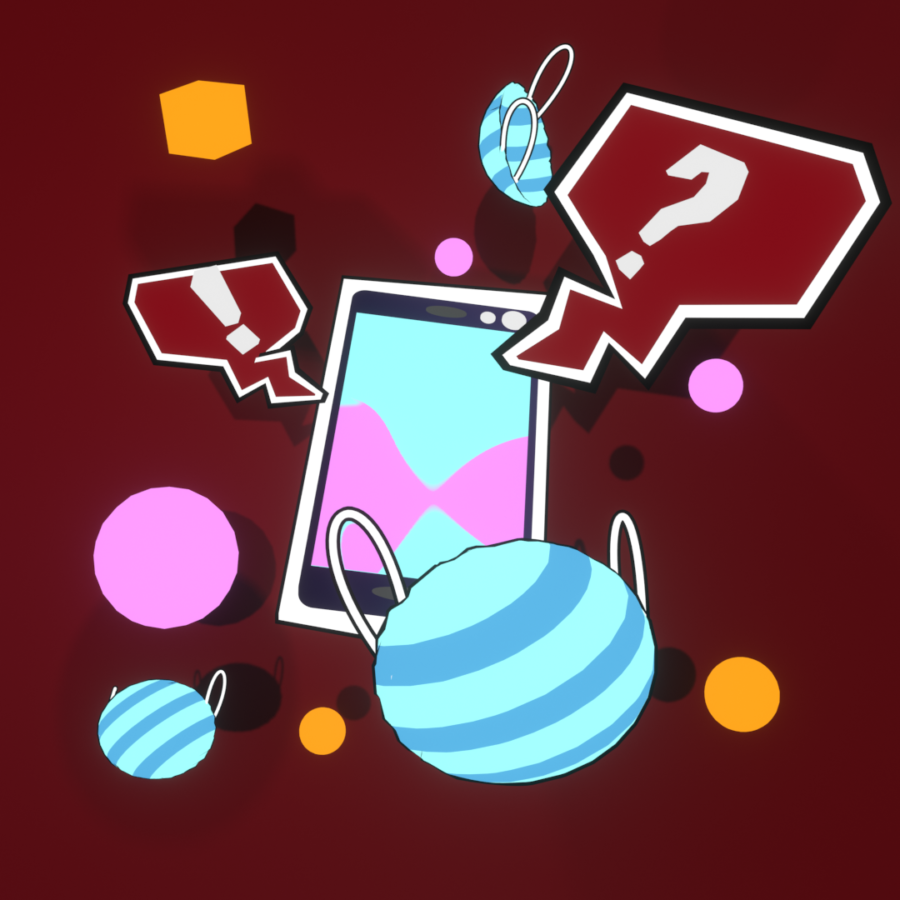To the students joining and rejoining the University of Chicago in Autumn 2020,
This won’t be the year that any of us wanted. It won’t be easy. We won’t feel safe. But it will be a year in which thousands of great things are accomplished at our university, by all of us, by you. And we can make those thousands be tens of thousands if we work together on the most essential (though rarely talked of) academic skill: taking care of ourselves and each other.
The things we ask ourselves to do here at UChicago are hard. I know they’re hard, you’re thinking, but no, they’re harder than that. We forget, because we do them daily, just how hard they are. Crafting persuasive language, doing calculations, spotting biases in sources and flaws in code, grappling with disruptive art or painful facts, modeling in our minds the complex molecules or economic structures which shape our lived experience yet are as invisible to human senses as starlight to creatures of the ocean floor—these tasks ask the maximum a human brain can give. They use technologies of thought, methods of reading, critiquing, deconstructing, doubting—all of which took as many generations to develop and as many hands to build as any instrument in our best laboratories. On a Core syllabus we ask you to jump from Aquinas to Machiavelli in a week, but that advance in politics and ethics took just as many years as from Newton’s Principia to Yuri Gagarin’s space flight, and just as much teamwork. And yet, as a student, you make those epoch-shaping leaps every day. So I say again: the things we ask ourselves to do here at the university are hard.
To keep ourselves able to do hard things, we need to take care of ourselves, and of each other.
Health organizations in nations around the world have recognized 2020 as a Global Mental Health Epidemic. Fear, stress, hate, being hated, the dissolution of our social world—these things cause pain. Real pain.
I know about pain. I’m disabled, a chronic pain sufferer, an invisible disability unless I have my cane, but it means I’ve had to learn a lot about how pain works to keep myself able to research, teach, and write. So when COVID hit, I recognized the symptoms: exhaustion, fog-fatigue, sleepy all day yet struggling to sleep, my concentration straying, tasks that should be easy somehow hard. Pain is complicated. We’re still learning how it works (and likely some of you reading this will be part of the team that makes the next breakthrough), but one thing we do know is that repeated pain, hurting the same place in the same way, day after day, does damage. It’s a strange experience. When my pain flares, I often feel angry at myself. It isn’t that much pain, it’s just medium, way less pain than if you bang your finger in a door, and yet it shuts me down, my mind is fogged and useless, my concentration gone. My mind insists: It’s just a little pain, I should be able to push through. Wrong. Because my pain is chronic pain, repeated in the same place so it does a special kind of damage to the nervous system: trauma. So while I can cope with different pain, when that pain comes it kicks the brain into an electric storm and higher functions (concentration, memory, language, writing, social graces, math) all weaken, not because I’m weak, but because that’s how the human body works. That’s why push through is wrong, why pain days are for resting, minor tasks, and, above all, for taking care of myself.
2020 brought chronic pain to every single human being. Fear, anger, and grief, repeated daily over six months, cause neurological trauma, weakening memory, concentration, and shortening tempers, making it hard to sleep. No one on Earth is operating at 100% right now, we’re all at 70% at best, running tired, running slow. It isn’t how we tend to think of trauma. In fiction, we see it depicted as a single all-transforming incident, the grim backstory day when the helpless protagonist watched [villain] do [atrocious thing] by the thematic raging sea. That is one kind of trauma, but equally real is the quiet trauma of waking every day to check the news and feel more fear-pain as the same words hammer down: pandemic, death-rate, fascism, contagion, brutality, climate disaster, crisis, oppression, enemy. It has been hurting us for six long months. We’re all starting this school year damaged, more exhausted than we usually are after finals.
Before athletes step onto the field they warm up, stretch, make sure they eat right (balance, proteins, carbs) to be at peak performance when it’s time to push human potential to its limits. Writing an amazing essay requires peak performance as well, yet we whose tasks are the athletics of the mind so often try to run on empty, skip lunch, marathon work, and stay up ridiculously late. The brain is a body part. It needs rest and balance just as muscles do. We pretend it’s different, hear Plato’s ancient voice insisting that the noble thinking being inside us can’t be vulnerable to so petty a force as blood sugar. But it is. Thousands of studies show us that it is. A scholar needs to keep their brain in top condition. That’s why self-care is an academic skill. This summer, I wrote up a self-care and healthy work habits guide to help the whole campus learn what things can get your brain in shape, how to make your personal list, a favorite meal, a favorite song, some exercise, a walk, ways to get ready, like an athlete’s stretches warming up for the race. And it means recognizing what kind of race this is.
Studying is not a sprint, it’s a marathon. We can’t exhaust ourselves and push through; that only leads to crashing. When we don’t have enough time, it’s always tempting to cut self-care. Self-care doesn’t have deadlines or grades; nobody’s waiting on us, there’s no friend we’ll disappoint if we skip our leisure reading the way we will if we don’t answer that email, or complete that promised task. No one gets hurt but us, or so it seems. But self-care does have deadlines, and during a pandemic all of our deadlines become harder to meet, all our work slower and of lower quality. A five-page paper takes twice as long to write if we’re burnt out. Skipping self-care hurts all our work thereafter. And skipping self-care hurts other people too because if we burn out, we won’t be strong enough to help our friends when they need it. No one is helped by you sinking. Your friends want you to take care of yourself, just as much as you want to help take care of them.
At this point, many of you are thinking yeah, self-care is great, pity I can’t do it, my schedule’s too intense, I’d fall behind. No. You have it backwards. Self-care makes you more efficient. I’m going to say that again because people usually aren’t ready to believe it: self-care makes you more efficient. Taking a half-hour here for rest, an hour there for play, it doesn’t make you fall behind, it makes you get ahead. You know that feeling when you’re at the computer and getting the words down feels like pulling teeth? Or reading, when you get to the end of a page and realize you don’t remember anything and have to go back? Or when your mind keeps wandering? Or those mornings when you wake up and just… can’t… even… and you know the work that’s waiting but instead you start browsing on your phone and time just flies? Those are because you aren’t taking care of yourself. If you carve out time for things that heal you—like cooking a fun dinner or laughing with a friend—if you keep your brain in good condition, the work goes faster. You read faster. You write more in an hour. You remember better, lose less time looking things up. Instead of staring into space between each paragraph, you’re sharp, focused, and ready. You do things in less time. It’s hard to believe, but it works. There’s a chart on the last page of myself-care guide that spells out how it works, hour by hour. So often I hear students in the hallway boasting: “I’ve been working so hard, I only slept five hours last night.” “Well, I only slept three hours last night.” “Well, I pulled an all-nighter,” as if the more you deprive yourself, the more serious a scholar you are. That’s backwards too. Yesterday, I slept eight hours, gamed with friends, and got my work done too. If you deprive yourself, everything starts taking longer. It’s hard to put self-care first, to leave a pressing to-do list to Skype with friends, take a hot bath, or pet the neighbor’s dog, but after taking a break, we race through that to-do list faster.
Since tennis elbow is a common injury in sports (affecting 40 percent of players), athletes read up on the list of symptoms and which remedies can treat the problem before it gets severe. Academic study has its own tennis elbow, which studies find affects 30 percent or more of undergrads and 40 percent of grad students: depression and, relatedly, anxiety. It’s all over the university: in every classroom, dorm, and friend group, and in the faculty. Everyone is at risk, just like every tennis player is at risk for tennis elbow and learns to watch for it. And there’s Impostor Syndrome, which every one of us should learn about because it affects more than 70 percent of people on campus, making us (yes, faculty too) worry that we aren’t good enough be here, that our work isn’t real work not like [so-and-so’s] work, a background noise of doubt that drags us down. And those numbers (30 percent, 40 percent, 70 percent) are from before the Global Mental Health Epidemic made the situation so much worse.
So, we need to learn how to take care of ourselves, and of each other.
We need to learn which kinds of rest and play regenerate us, and which don’t. We need to learn about mental health, read up on symptoms, use things like Wellness Services’ Mental Health First-Aid Training, which teaches to spot signs of a crisis in others or yourself, and how to help. We need to be patient when our friends are short-tempered, remembering our tempers are shorter this year too. We need to have fun together, share activities that lift our spirits, like the ExoTerra Imagination Lab, which I created to give us something positive to make together as the winter nights grow long. That’s self-care. Hanging out with friends is self-care too, remotely or in person, watching a show together, baking night, creating something as a group, even just “work in company” having some friends on voice chat as you work; study after study shows one of the best ways to flush fear chemicals out of the brain is simply talking to a friend. We’ve never been so isolated, cut off—six feet or a thousand miles—and we’ve never needed each other more. So, we need to remember that self-care is an academic duty.
This year’s marathon will be harder than normal; we’re already winded at the start. But we were all brought to this university by our love of learning and humanity, so I know we can turn that love into teamwork. We will achieve ten thousand things this year, not quite the things we’d planned, but fundamentally being a student is about becoming more powerful, gaining the kind of knowledge that is power. If the power you gain this year is learning to take care of yourself and others, that will be invaluable for years to come. This won’t be our last crisis, after all. Because you know what else is a marathon? One that takes all the teamwork, planning, kindness, and human excellence that we can give it? Earth.
Ada Palmer is an Associate Professor in the Department of History.
Editor’s Note: On May 15, 2023 a link to the Centers for Disease Control’s (CDC) page on Coping with Stress during the Coronavirus Pandemic was replaced as the page originally linked was removed by the CDC. The replacement link is to an archived CDC document titled “Mental Health and Coping During COVID-19”.


















Susan Barr / Aug 30, 2022 at 12:02 pm
Thanks! I loved Perhaps the Stars.